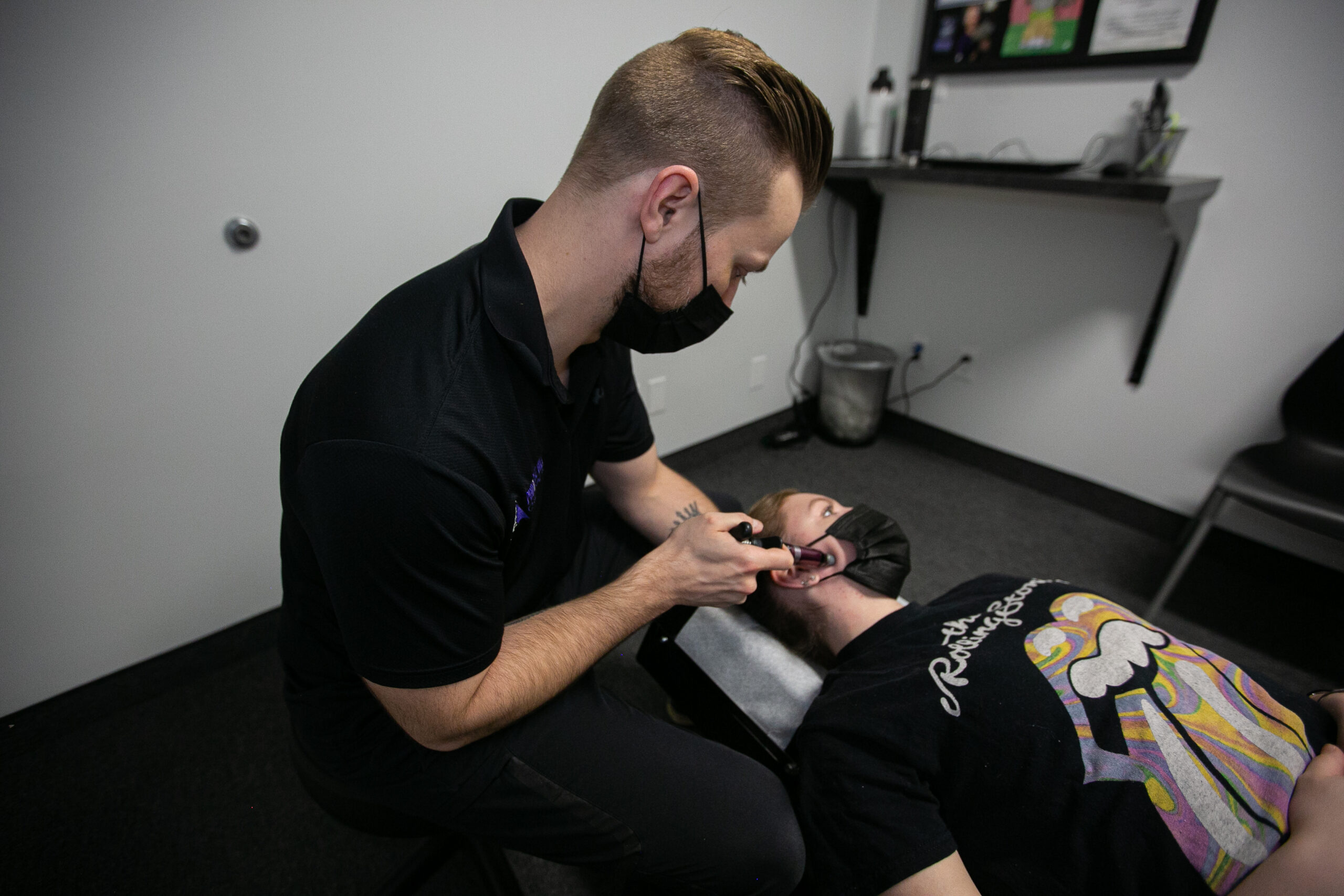TEMPOROMANDIBULAR JOINT DYSFUNCTION
Dr. James has been managing his own temporomandibular joint dysfunction and pain since he woke up one morning unable to open his mouth due to jaw locking. What was once a horrifying experience became his motivation to understand jaw pain and how to most effectively treat patients who experience it. Dr. James has made it his mission to become the leading conservative care provider in Rochester for jaw pain and dysfunction because he knows firsthand how debilitating it can become when left unchecked.
WHAT IS TMD?
TMD stands for Temporomandibular Joint Dysfunction. This is a condition where a patient’s moves in a dysfunctional manner resulting in a variety of symptoms. While many people refer to jaw dysfunction as TMJ, this is actually the name of the joint itself: TemporoMandibular Joint. Patients who suffer from TMD can experience a large variety of symptoms including:
- Clicking or popping in the jaw, this can happen when opening the jaw, closing the jaw or at both times
- A sensation of grinding or crepitus in the jaw joint
- Difficulty opening the jaw all the way
- Locking of the jaw in either the open or shut position
- Tingling, numbness or electrical zapping into the jaw, base of the skull or teeth
- Stiffness, tightness and pain along the jaw, the neck or the side of the skull
- Headaches
- An increased tendency to clench one’s teeth
- Difficulty eating firm foods or chewing gum
WHO EXPERIENCES TMD?
Temporomandibular joint dysfunction is incredibly common. Research shows that up to 35% of people experience TMD at some point in their life. Unfortunately, only between 5-10% of patients who suffer from TMD seek care. This is primarily due to it being difficult to know who you should be seeing for TMD symptoms. Research shows that conservative care, like Chiropractic can greatly aid in the alleviation of TMD symptoms.
WHAT CAUSES TMD?
Muscle dysfunction:
- Dental procedures, this can be anything from oral surgery to braces
- Jaw overuse due to speaking for long periods of time, singing
- Muscle guarding due to clenching, grinding and chewing
- Trigger points in the muscles of the jaw
- Direct trauma to the jaw
Joint dysfunction:
- Often accompanied by clicking, popping and grinding
- Can be caused by direct injury to the jaw, clenching or grinding
- Injury to ligaments of the jaw
- Disc displacement, yes the jaw has a disc just like your low back
Cervical spine, the neck:
- The neck and the jaw have a special connection in the spinal cord that allows for dysfunction of the neck to trigger jaw pain as well as jaw pain to trigger neck pain
- The same connection happens between the jaw and headaches as well as the neck and headaches
- Anyone experiencing headaches, neck or jaw pain on their own can, as a result, easily begin to experience the other two or all three if the condition isn’t treated
Stress:
- According to the research, patients who experience TMD tend to experience substantial psychological stressors compared to patients without TMD. This includes:
- Stress
- Anxiety
- Depression
- Poor sleep
- Poor diet
HOW CAN CHIROPRACTORS TREAT TMD?
Treating TMD is most effectively done by addressing the primary cause or causes of the dysfunction. While we mentioned the 4 classifications of TMD above, patients can and often do fall under multiple classifications or move from classification to classification throughout the course of their lives and treatment.
WHAT TO EXPECT WHEN RECEIVING CARE?
We treat TMD with a variety of conservative approaches including, muscle massage, jaw mobilizations, gentle jaw manipulations and rehabilitative exercises. We also address aspects of your lifestyle including sleep, diet and stress management. Additionally, we often recommend working with you dentist to see if any oral appliances are appropriate for aiding in your recovery from TMD.


